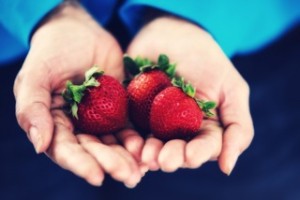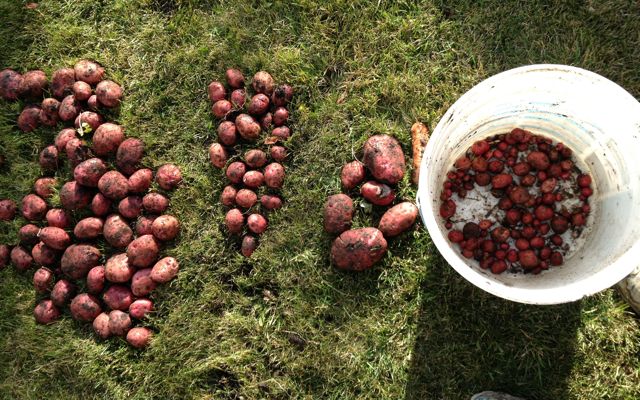
A healthy way to live is to eat “in season”.
That means eating foods that are at their peak of flavour and nutrients. This often happens only once per year, for a very short time, especially if eating locally is the goal.
Eating in season is also economical. Whatever is in season is usually cheaper than it will be any other time of the year.
In my opinion, food eaten in season tastes better. It’s usually fresher and more nutritious.
The best season of our food year is imminent. It starts with spring baby lettuce, baby spinach leaves, green onions and crisp, tangy radishes. All these are easy to grow at home. They like cool weather and can be seeded in Calgary anytime after mid-April.
If you’re really lucky, you have an asparagus patch. Their tender shoots magically appear overnight. Raw, they remind me of fresh raw peas. Lightly steamed until al dente and brushed with a teaspoon of butter or olive oil, they have their own unique flavour. Very yummy!
I get really excited about spring fruits. Early rhubarb always reminds me of my grandma, who made rhubarb “pudding”, a yellow cake batter poured over a pan of chopped rhubarb, baked and served warm with ice-cream.
Strawberries in June embody the spirit of summer! A touch of honey. A bit of cream. Fit for a queen!
The first cherries arrive in June. When their skins are crunchy and their flesh, sweet and juicy, I can eat them for breakfast, lunch, and dinner and I often do!
Picking berries was an integral part of my childhood summers. My siblings and I would mount our bikes or horses with our ice-cream pails and larger buckets. We headed home when the buckets were full. It could take all day: we spent more than half our time cramming berries into our mouths!
When the first peas are ready, I am at peace in the garden, splitting the warm pods to discover the sweet treasures inside. The best carrots are the true babies, (not the peeled to shape varieties) pulled, wiped on my pants, and crunched, soil granules and all, right there in the garden.
And potatoes! New potatoes stolen from the periphery of the plant are creamy and sweet. If I never ate another mature potato I wouldn’t care but new potatoes are a completely different animal!
In the old neighbourhood where I live many yards have raspberry patches. Kids love to stick a berry on each of their ten little fingers, wiggle them around, and then devour them one by one.
As summer wanes plums and peaches come into season. More feasting on fruit. And what to do with all that zucchini? (I like them baby so I don’t have that problem).
Alas! Our season is short! By fall, some vegetables are just coming into their prime. The brassicas like cabbage, cauliflower, broccoli, Brussels sprouts, all like cool weather. Turnips and parsnips are sweeter if they’ve experienced frost.
Eating in season will bolster the total nutrients you take in, reduce your carbon footprint since it’s easier to eat locally, and likely give your pocketbook a break. I highly recommend it.

